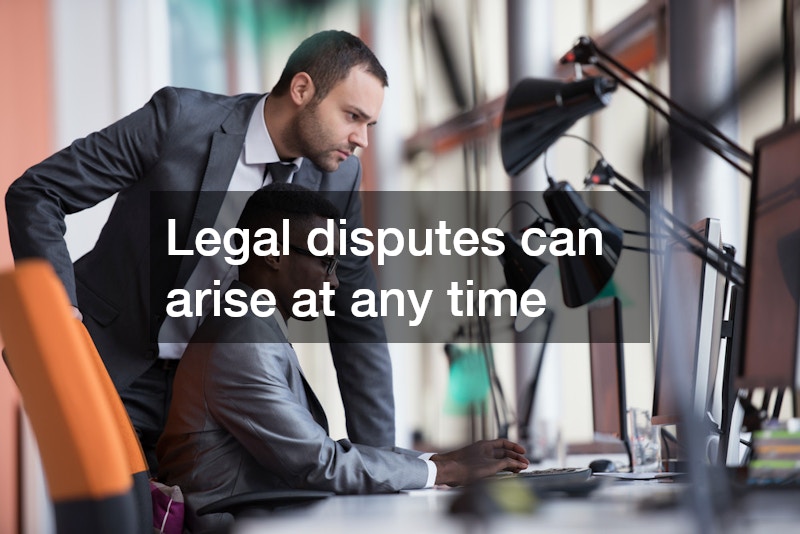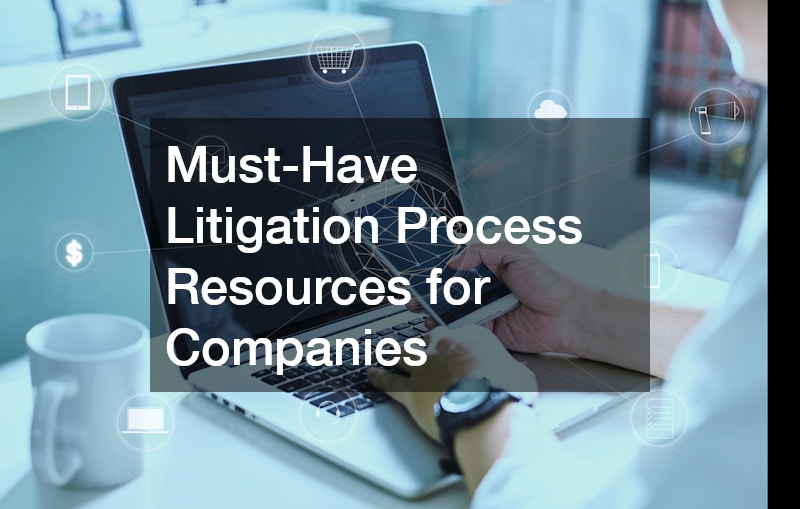Legal disputes are an unavoidable reality for many businesses. Whether it’s a contract disagreement, employment issue, or intellectual property claim, being unprepared can lead to costly consequences. For companies seeking to navigate legal challenges efficiently, having access to the right tools and information is essential. That’s where litigation process resources come into play. These resources help businesses understand the legal landscape, streamline processes, and make informed decisions that protect their interests.
In this article, we’ll explore the most essential litigation resources every company should have at its disposal, and how to implement them effectively for maximum benefit.
Legal Research Tools
One of the most critical litigation process resources for businesses is comprehensive legal research tools. Access to case law, statutes, regulations, and legal precedents enables companies to understand the legal framework surrounding their disputes. Online platforms such as Westlaw, LexisNexis, and Bloomberg Law provide up-to-date legal information and analysis, allowing corporate legal teams to build stronger strategies.
Using these tools, businesses can quickly identify relevant cases, review judicial interpretations, and anticipate potential arguments from opposing parties. For smaller businesses without in-house counsel, legal research databases can be invaluable for guiding preliminary decisions before consulting external attorneys.
Beyond traditional legal databases, companies can also leverage government portals, regulatory agency websites, and open-access legal libraries. For example, the U.S. Securities and Exchange Commission (SEC) provides searchable filings, which can be a critical resource for businesses involved in corporate compliance disputes. By combining multiple sources of information, companies can gain a more comprehensive understanding of legal requirements and precedent, minimizing the risk of costly missteps.
Document Management Systems
Managing documents effectively is another cornerstone of successful litigation. Legal disputes often involve large volumes of contracts, emails, financial records, and other critical materials. Companies can rely on specialized document management systems as key litigation process resources.
Platforms like iManage, NetDocuments, and SharePoint help organizations store, organize, and retrieve documents securely. They also facilitate collaboration between internal teams and external legal counsel. A well-structured document management system reduces the risk of missing deadlines, losing evidence, or exposing sensitive information, which can significantly impact the outcome of a case.
Moreover, document management systems often include version control, audit trails, and secure access permissions—features that ensure compliance with legal and regulatory standards. For example, if a business is facing a contract dispute, having a digital record of the original agreement and all subsequent modifications can be decisive in court. Companies that invest in these systems save time, reduce administrative errors, and improve accountability across departments.
Case Management Software
Case management software is an essential tool for companies managing multiple legal matters simultaneously. This type of litigation process resource allows businesses to track deadlines, monitor case progress, and allocate resources effectively.
Software solutions such as Clio, PracticePanther, and MyCase enable legal teams to maintain a central repository of case-related information, schedule court dates, and generate reports for management. By using case management software, companies can improve communication between stakeholders, reduce administrative errors, and ensure that litigation is handled efficiently.
Case management tools often include analytics features that help businesses identify trends in disputes, track litigation costs, and forecast potential outcomes. For instance, if a company notices a recurring pattern of intellectual property conflicts, case management software can help pinpoint underlying issues and inform proactive strategies, such as strengthening contracts or enhancing employee training programs.
Expert Guidance and External Counsel
Even with the best tools, navigating complex legal disputes often requires professional expertise. Experienced attorneys, consultants, and industry experts are invaluable litigation process resources for companies. External counsel can provide strategic advice, conduct risk assessments, and represent the business in negotiations or court proceedings.
Consulting with experts in areas such as forensic accounting, intellectual property, or regulatory compliance can strengthen a company’s case. For example, in a financial dispute, a forensic accountant can help trace funds and provide evidence that supports your position. Similarly, intellectual property experts can evaluate patent or trademark claims to ensure your business is protected.
Many companies also benefit from forming ongoing relationships with law firms and consultants. Having trusted advisors on retainer ensures a rapid response when disputes arise and enables businesses to tap into specialized knowledge without delays. This proactive approach to litigation preparation can make the difference between a favorable settlement and a prolonged, costly court battle.
Employee Training and Internal Protocols
A lesser-discussed but highly effective litigation process resource is employee training and well-defined internal protocols. Many legal disputes arise from internal misunderstandings, compliance failures, or procedural errors. By educating employees on contract obligations, data handling, and reporting processes, companies can prevent disputes from escalating.
Creating internal playbooks that outline how to respond to legal notices, preserve evidence, and document communications can also reduce risk. When employees understand the importance of compliance and proper record-keeping, the business is better prepared to handle litigation efficiently. In essence, training and protocols serve as preventative litigation process resources that minimize exposure and improve response time during disputes.
Legal disputes can arise at any time, and preparation is key to protecting your company’s interests. From legal research tools and document management systems to case management software, external counsel, and internal protocols, the right litigation resources equip businesses to navigate disputes effectively and efficiently.
Investing in these resources not only minimizes risks but also improves organizational readiness, helping companies respond proactively rather than reactively to legal challenges. By integrating these essential tools, guidance, and internal processes into your legal strategy, your business can approach litigation with confidence and a clear path toward resolution.
A company that prioritizes these resources positions itself to handle disputes more efficiently, reduce legal costs, and maintain its reputation in the market. In the long run, proactive use of litigation process resources is not just about managing conflicts—it’s about safeguarding your business and enabling sustainable growth.



